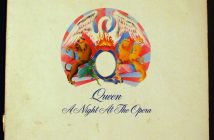The Huffington Post recently published an article discussing the late David Bowie and the controversial subject of predominantly male stars who use (and sometimes abuse) their celebrity status to take advantage of women. Pop-culture history is full of allegations against such stars as Elvis Presley, David Bowie, and current cases before the legal system, like Bill Cosby. The author of the article, Angelina Chapin, discussed the idea of glorifying celebrities to the point where the idea of them doing anything ‘bad’ is impossible to consider, whilst also acknowledging that people can commit crimes and still be talented and beloved public figures.
This is commonly seen in more recent times in YouTube culture, as YouTubers gain high profiles and become involved in book deals and advertising, which often increase the high numbers of subscribers and lead to a dedicated, loyal fanbase. Such vloggers sometimes find themselves in situations where it is possible to take advantage of fans – often young girls. Celebrities need to stop taking advantage of such powerful positions. It isn’t entirely the responsibility of the fan to ‘take care’ around that person – if celebrities know they have people who idolise them, then they should refrain from manipulating them for their own gain or amusement.
In 2014, high-profile YouTubers, like Tom Milsom, Mike Lombardo and Alex Day, started to get ‘outed’ as sexual abusers and manipulators. People anonymously posted their experiences, which led to other YouTubers posting their experiences, such as Dodie Clark. The more people who came out with their stories, the more stories came out.
Chapin’s aforementioned article seemed to carry a dialogue of “yes, David Bowie was talented, but he also (allegedly) had sex with an underage woman,” putting forward the idea that the two things do not need to coincide. On YouTube, Alex Day – a once popular vlogger and musician with over a million subscribers and a book deal – said that he didn’t care if people disliked him for the allegations but still liked his music. To him, they could remain separate things and even though he’d had those allegations, his songs could still be enjoyed.
The other problem comes from what is done with the knowledge of the problematic actions of the celebrities. When David Bowie died, his life and music were celebrated. In the cases of YouTubers, a lot of them took a break when their illicit actions were revealed – Alex Day privatised all of his videos except for the music ones, made a second collaborative channel (with fans) on Buddhism and mindfulness, and is now creating content on his old channel with a weekly schedule. Others react in the same way, continuing as if nothing has happened, despite the negative comments and drastic amount of unfollowing.
As Chapin said, it is important to talk about sexual misconduct. No matter the popularity of a person, it cannot be assumed that a celebrity can do no wrong just because they have a large fanbase and are loved by people. If that happens, what message does that send to the victims?
However, it is also important to remember as a fan, that the celebrity someone likes is almost certainly not the same in real life. Especially with YouTube and celebrity interviews, editing is often used to cut out anything that they do not want their audience to hear, scripts are used and managers and PR teams can have a lot of impact – from telling them how to dress to how they should portray themselves. That’s not to say that every celebrity is a fake person, but they are able to create a character for people to enjoy which may not be like how they are in real life. That’s not to say that there aren’t some genuine celebrities, but it is important to bear in mind that just because somebody seems to be the ‘ideal person’ online, they aren’t always who they seem to be in real life.




